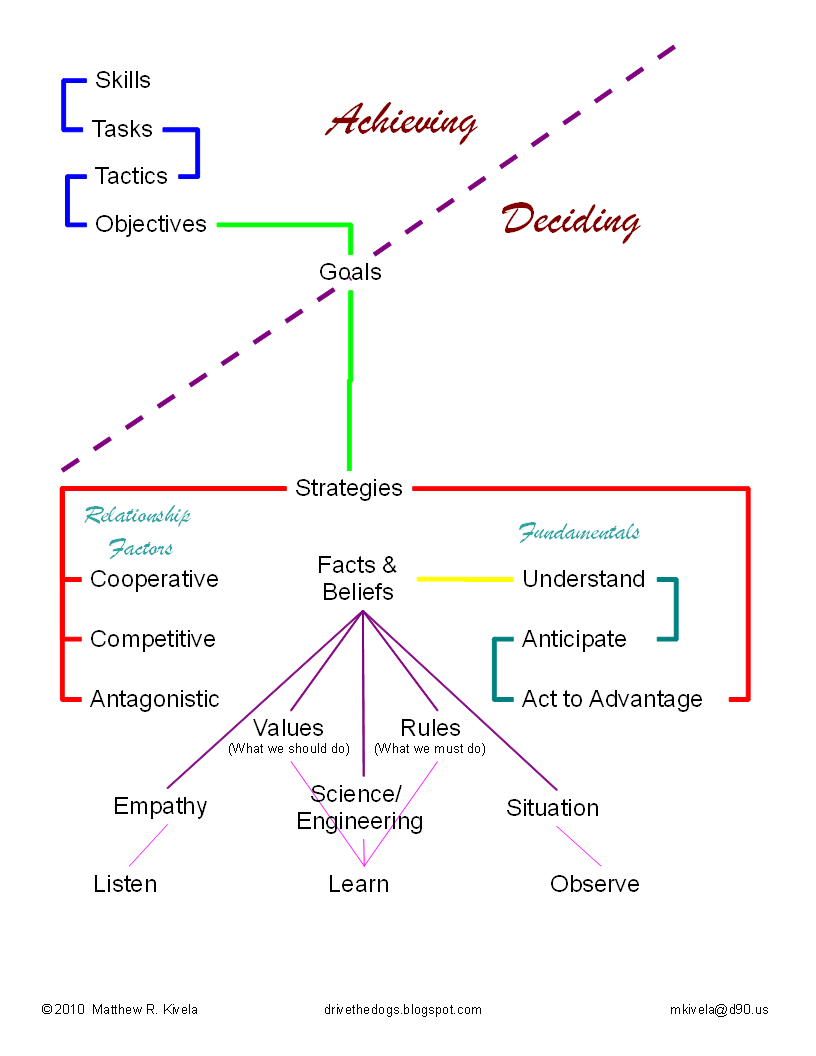Saturday, October 23, 2010
There are three fundamental concepts to developing strategy: Understand the situation, anticipate the reaction of others, and act to advantage.
Understand the situation:
In June 1815 Wellington had his British Army and the Prussian Army in Belgium, but the allies had decided to wait until July 1st when the rest of the allied armies would assemble before attacking France. The British and Prussian forces were dispersed. Wellington knew the terrain of Belgium well.
Anticipate:
If Napoleon attacked it was reasonable to anticipate his strategy would be to attack the dispersed forces, to cut off the lines of communication between the Prussians and British armies by moving quickly north to the west of Brussels, then turn westward to cut off the British from the port of Antwerp.
Act to Advantage:
Wellington kept his forces dispersed. Napoleon struck, once he engaged the Prussian Army Wellington could anticipate the logical route he would continue on and began concentrating at Waterloo.
Waterloo had special terrain -- the main battlefield had gently rolling hills that allowed much of the British Army to concentrate their unseen behind those hills. Strong holds -- one a small village, one a woods could secure either flank by being fortified while still concealing the strength of forces. Here, Wellington could hope, Napoleon would not realize that the dispersed British Army had been concentrated until after he was committed to the attack.
Wellington understood the situation and terrain, he anticipated Napoleon's choices, and acted to take advantage decisively. So well thought out and executed, we still speak of a crushing defeat as to have "met one's Waterloo."
Subscribe to:
Post Comments (Atom)

No comments:
Post a Comment